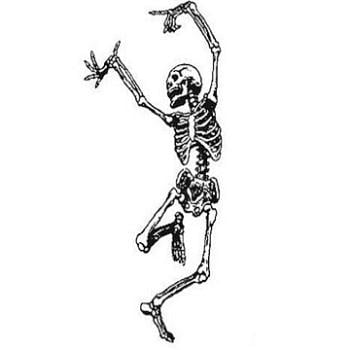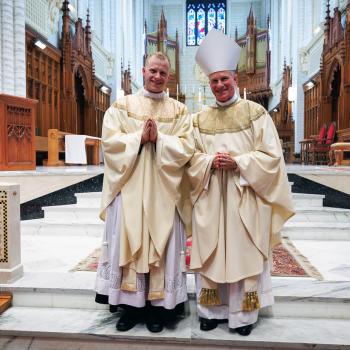Lectionary Reflections on Matthew 25:1-12
The Parable of the Ten Bridesmaids
Sunday, November 7, 2011
One of the themes dear to Matthew's heart is the theme of the anticipation of coming judgment. It is important for him to emphasize to his community two things with regard to Jesus' return. One is that they don't know when it will come, so speculation is futile. The second is that it will come, so preparation is crucial. In the parable of the Faithful or Unfaithful Slaves that directly precedes the parable of the closed door, the Master comes back sooner than the slave anticipated and found him abusing his powers. In this parable, the Bridegroom comes later than the foolish bridesmaids anticipated and they had not gathered the provisions needed to welcome him.
We are often unprepared for what comes next in life, despite our constant preoccupation with the future. Sometimes a premature ending takes us by surprise. At other times, we are unprepared for something to take longer than we had anticipated. In the former case, we think we have all the time in the world, to mend a relationship, to achieve an important goal, to discontinue a bad habit or begin a good one, to take care of ourselves, to develop our relationship with God, to read important books, to take a stand, to show we care. My paternal grandmother lived to be 95. My father looked very much like his mother, so naturally, I just always assumed that he, too, would live to be 95. Until he got liver cancer at age 74 and died at age 76. I felt robbed of 20 years. Where is the time now to express my appreciation to him, to call him and ask his advice on this or that? We have all the time in the world to spend time with our kids. Except somebody sped up the clock, and now their rooms are empty and we get the sinking feeling that a ship has sailed that will never return to port. There I go mixing metaphors again, but I have a lifetime to get over that bad habit and all my others as well.
I was once in a hotel workout room, its sole occupant, walking on the treadmill in between meetings and reading a light novel. A man came in and got on the elliptical machine. He tried watching CNN for a while, but soon got bored and so became determined to engage the only other person in the room in conversation. "My wife makes me come down here everyday. I hate this. What are you reading?" I showed him the cover. "You seem pretty fit, but you won't live forever," he said to me. "Shouldn't you be reading something more important?" I started to point out that he hadn't brought anything to read at all, but put aside the impulse. He was right. I may live quite a while, but I will die not having read all the important books. Maybe there is more urgency to try than I usually feel.
Rabbi Eliezer taught his disciples, "Repent one day before your death." One of them then asked, "How will we know when that day is?" To which he replied, "All the more reasons to repent today, lest you die tomorrow."
In the parable of the closed door, the problem was not the surprisingly quick return of the master, but his surprising delay. The bridesmaids, the 5 foolish ones anyway, were not prepared for the long haul. Many of us don't have health habits made for the long haul. We have fad diets and sporadic exercise regimes. Many of us don't participate in friendships for the long haul, but allow geographic changes to end friendships we thought would be lifelong. Even though life and the world may seem to go on forever, a day is coming when there will be no more second chances to do certain things or to cease doing others.
The parable of the Ten Maidens appears only in Matthew's Gospel. Certain features of the wedding it describes seem realistic, others are strange. In ancient Palestinian weddings the marriage feast was at night; the bridegroom was met with lamps, and the bridegroom did delay coming for the bride. Certain details are not realistic. They include the length of the delay, the midnight arrival and the supposition that the shops would have been open for the sleeping maidens to buy oil (Luke 11:5-8).
The parable is an allegory of the delay of Christ's return in Matthew's community. Those awaiting the return of the groom are called "virgins." Virginity is commended because the unmarried person is concerned for the things of the Lord rather than the needs of the spouse (Matthew 19:10-12). The five virgins who are prepared for the return symbolize appropriate Christian discipleship during the delay of the return of Christ.
The five foolish maidens are not foolish because they slept, but because their lamps are not lit. Light in the parable symbolizes good deeds done in response to God's gracious initiative. In 5:14-16, Jesus exhorts his disciples, "Let your light shine before men and women that they may see your good works and give glory to your father in heaven." In 13:43, Matthew's Jesus says: "The righteous will shine like the sun in the kingdom of their Father." "Light" (see Mark 4:23; Luke 11:33) is a symbol of good deeds or proper moral disposition.





